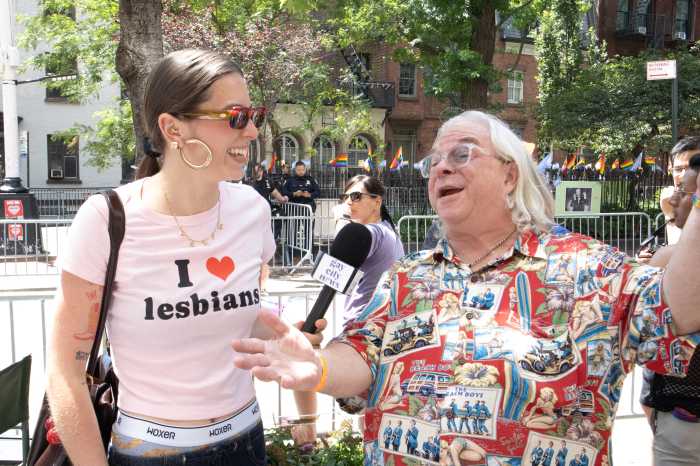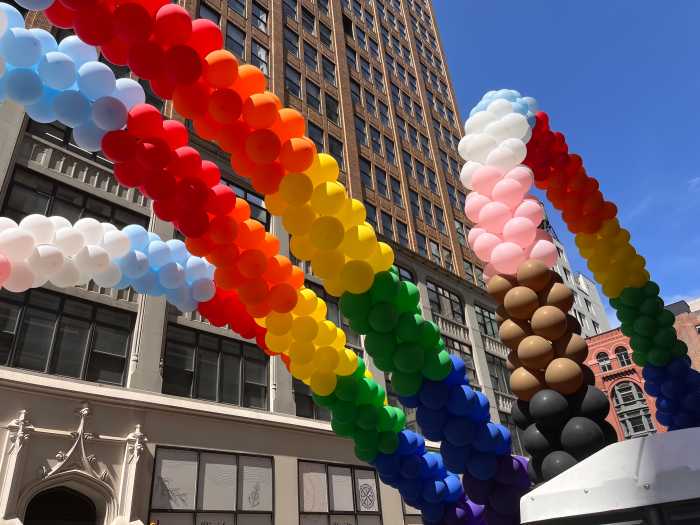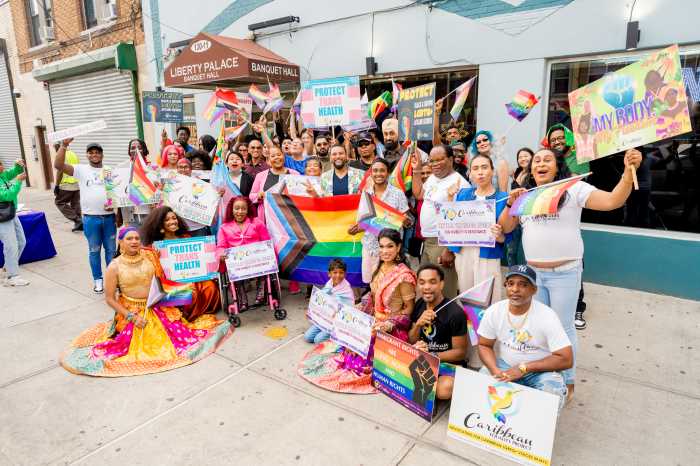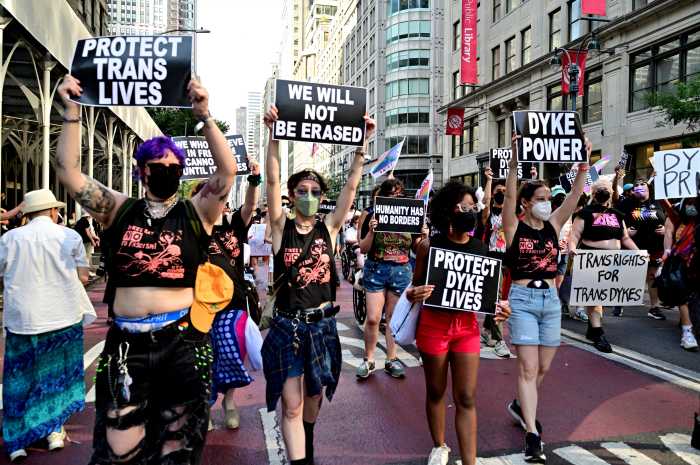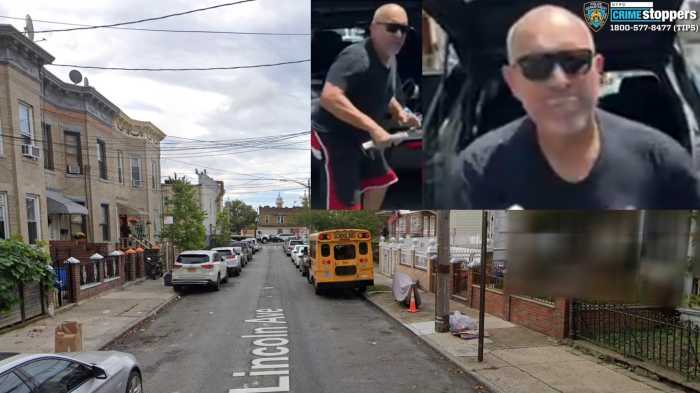Dr. David Wohlstadter’s client may have been unlucky to land in an emergency room, but fortunate to find one as well-equipped as that at NYC Veterinary Specialists. (GAY CITY NEWS)
Dr. David Wohlstadter was giving me the grand tour of the hospital. As we passed by the ICU, the radiology rooms, the neurosurgery suites, and the emergency room staffed with about a dozen employees, I kept having to remind myself of one thing: this wide array services wasn’t designed for New Yorkers — it was for their pets.
“What you can do with humans, you can do with pets,” Wohlstadter said. “All the things you see in a human hospital, we have here.”
Wohlstadter is a gay, 32-year-old emergency clinician at NYC Veterinary Specialists, one of the most advanced veterinary hospitals in the city. Born in St. Louis, his interests in both science and working with people led him to St. Louis University, where he graduated with bachelor’s degrees in Biology and Psychology. Combining his academic interests with a longstanding love of animals, he pursued a doctorate in Veterinary Medicine from the University of Missouri. Afterwards, he headed to New York to begin his career as a veterinarian, interning at the Animal Medical Center in Manhattan and practicing in Yonkers until joining NYC Veterinary Specialists when it opened in 2006.
“I really like working with New Yorkers,” Wohlstadter said, citing the diversity and size of his local clientele as an important factor in working there. “There are some wonderful people you meet by working in this kind of environment.”
Wohlstadter explained that it’s his unique position as an emergency veterinarian — helping both pets and people in a time of crisis — that makes doing his job especially rewarding. For many New Yorkers, their pets are their family, he said, and he enjoys being able to ease the minds of pet owners by practicing medicine. And Wohlstadter noted that the sheer volume of clients who come in each day allows him to meet an interesting mix of personalities.
“It’s nice to see the human-animal bond and relationship,” he said. “You never know what medical condition is going to come in, and you never know what kind of person is going to come in with that animal, so it’s a fun job to have.”
Wohlstadter owns three pets of his own — a nine-year-old Siberian Huskie named Eva, a four-year-old mix named Nia, and a cat named Sophia. He developed his love for animals by being surrounded by pets from an early age. He lives in Chelsea with his partner, an oncologist and the medical director at NYC Veterinary Specialists, whom he met while working there. Though they work in the same hospital, Wohlstadter and his partner specialize in different fields and rarely end up working on the same patients. Even so, Wohlstadter admitted that sharing a common profession is a beneficial part of the relationship.
“I think it’s great to have someone that you can relate to on a personal level, and then someone who understands your profession.” he said. “For us, it’s great.”
Working in New York has provided Wohlstadter with several insights — technical ones, like the “High Rise Syndrome” that befalls some pets when they stray too close to open windows, as well as a better look into the character of pet owners here in the city. He said New Yorkers are especially attuned to the needs and behavior of their pets, and share especially close ties with the animals they keep.
“You can’t just open your back door and just let them out, and let them back in an hour later like you can in other places,” Wohlstadter said, adding that New Yorkers often provide surprisingly accurate histories of their pets’ health. “People’s attitudes toward animals as being a part of their family are very progressive here,” he said. “People really rely on their pets as a source of their well-being and their happiness.”
When asked about the apparent large number of gay vets, Wohlstadter brushed off the notion that the two characteristics are related. For him, as well as many New Yorkers, he said, it’s the joy and the support that a pet brings that are most important.
“It doesn’t matter if you’re gay or if you’re straight, it doesn’t matter who you are or where you came from,” Wohlstadter said. “I think there’s something special about people wanting to be with animals and around animals, and I think it’s mutually beneficial for the people and the animals to have each other.”
For the Love of Companions|Dr. David Wohlstadter applies medicine’s best to New York’s friendliest“I really like working with New Yorkers,” Wohlstadter said, citing the diversity and size of his local clientele as an important factor in working there. “There are some wonderful people you meet by working in this kind of environment.”
Wohlstadter explained that it’s his unique position as an emergency veterinarian — helping both pets and people in a time of crisis — that makes doing his job especially rewarding. For many New Yorkers, their pets are their family, he said, and he enjoys being able to ease the minds of pet owners by practicing medicine. And Wohlstadter noted that the sheer volume of clients who come in each day allows him to meet an interesting mix of personalities.
“It’s nice to see the human-animal bond and relationship,” he said. “You never know what medical condition is going to come in, and you never know what kind of person is going to come in with that animal, so it’s a fun job to have.”
Wohlstadter owns three pets of his own — a nine-year-old Siberian Huskie named Eva, a four-year-old mix named Nia, and a cat named Sophia. He developed his love for animals by being surrounded by pets from an early age. He lives in Chelsea with his partner, an oncologist and the medical director at NYC Veterinary Specialists, whom he met while working there. Though they work in the same hospital, Wohlstadter and his partner specialize in different fields and rarely end up working on the same patients. Even so, Wohlstadter admitted that sharing a common profession is a beneficial part of the relationship.
“I think it’s great to have someone that you can relate to on a personal level, and then someone who understands your profession.” he said. “For us, it’s great.”
Working in New York has provided Wohlstadter with several insights — technical ones, like the “High Rise Syndrome” that befalls some pets when they stray too close to open windows, as well as a better look into the character of pet owners here in the city. He said New Yorkers are especially attuned to the needs and behavior of their pets, and share especially close ties with the animals they keep.
“You can’t just open your back door and just let them out, and let them back in an hour later like you can in other places,” Wohlstadter said, adding that New Yorkers often provide surprisingly accurate histories of their pets’ health. “People’s attitudes toward animals as being a part of their family are very progressive here,” he said. “People really rely on their pets as a source of their well-being and their happiness.”
When asked about the apparent large number of gay vets, Wohlstadter brushed off the notion that the two characteristics are related. For him, as well as many New Yorkers, he said, it’s the joy and the support that a pet brings that are most important.
“It doesn’t matter if you’re gay or if you’re straight, it doesn’t matter who you are or where you came from,” Wohlstadter said. “I think there’s something special about people wanting to be with animals and around animals, and I think it’s mutually beneficial for the people and the animals to have each other.”


